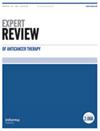Current uses and resistance mechanisms of enzalutamide in prostate cancer treatment.
IF 2.9
3区 医学
Q2 ONCOLOGY
引用次数: 0
Abstract
INTRODUCTION Prostate cancer continues to be a major cause of morbidity and mortality for men worldwide. Enzalutamide, a second-generation non-steroidal antiandrogen that blocks androgen receptor (AR) transcriptional activity, is a treatment for biochemically-recurrent, metastatic, castration sensitive, and castration resistant tumors. Unfortunately, most patients ultimately develop resistance to enzalutamide, making long-term treatment with this agent challenging. AREAS COVERED We performed a literature search of PubMed without date restrictions to investigate the literature surrounding enzalutamide and discuss the current uses of enzalutamide, proposed mechanisms driving resistance, and summarize current efforts to mitigate this resistance. EXPERT OPINION Enzalutamide is an effective prostate cancer therapy that is currently used in biochemically-recurrent and metastatic disease, and for both castration sensitive and castration resistant tumors. Unfortunately, resistance to enzalutamide occurs in each of these scenarios. In the clinical setting, enzalutamide-resistant tumors are either AR-driven or AR-indifferent. AR-dependent resistance mechanisms include genomic or epigenomic events that result in enhanced AR signaling. Tumors that do not require AR signaling instead may depend on alternative oncogenic pathways. There are numerous strategies to mitigate enzalutamide resistance, including concurrent use of PARP inhibitors or immune therapies. Additional work is required to uncover novel approaches to treat patients in the enzalutamide-resistant setting.恩杂鲁胺在前列腺癌治疗中的当前用途和抗药性机制。
简介 前列腺癌仍然是全球男性发病和死亡的主要原因。恩杂鲁胺是第二代非甾体抗雄激素,可阻断雄激素受体(AR)的转录活性,是治疗生化复发性、转移性、阉割敏感性和阉割耐药肿瘤的药物。专家观点恩杂鲁胺是一种有效的前列腺癌治疗药物,目前用于生化复发性和转移性疾病,以及阉割敏感性和阉割耐药肿瘤。不幸的是,恩杂鲁胺在上述每种情况下都会产生耐药性。在临床环境中,恩杂鲁胺耐药肿瘤要么是AR驱动型,要么是AR非驱动型。AR依赖性耐药机制包括导致AR信号增强的基因组或表观基因组事件。不需要 AR 信号转导的肿瘤可能依赖于其他致癌途径。缓解恩杂鲁胺耐药性的策略有很多,包括同时使用 PARP 抑制剂或免疫疗法。在治疗恩杂鲁胺耐药的患者方面,还需要开展更多的工作来发现新的方法。
本文章由计算机程序翻译,如有差异,请以英文原文为准。
求助全文
约1分钟内获得全文
求助全文
来源期刊
CiteScore
5.10
自引率
3.00%
发文量
100
审稿时长
4-8 weeks
期刊介绍:
Expert Review of Anticancer Therapy (ISSN 1473-7140) provides expert appraisal and commentary on the major trends in cancer care and highlights the performance of new therapeutic and diagnostic approaches.
Coverage includes tumor management, novel medicines, anticancer agents and chemotherapy, biological therapy, cancer vaccines, therapeutic indications, biomarkers and diagnostics, and treatment guidelines. All articles are subject to rigorous peer-review, and the journal makes an essential contribution to decision-making in cancer care.
Comprehensive coverage in each review is complemented by the unique Expert Review format and includes the following sections:
Expert Opinion - a personal view of the data presented in the article, a discussion on the developments that are likely to be important in the future, and the avenues of research likely to become exciting as further studies yield more detailed results
Article Highlights – an executive summary of the author’s most critical points.

 求助内容:
求助内容: 应助结果提醒方式:
应助结果提醒方式:


